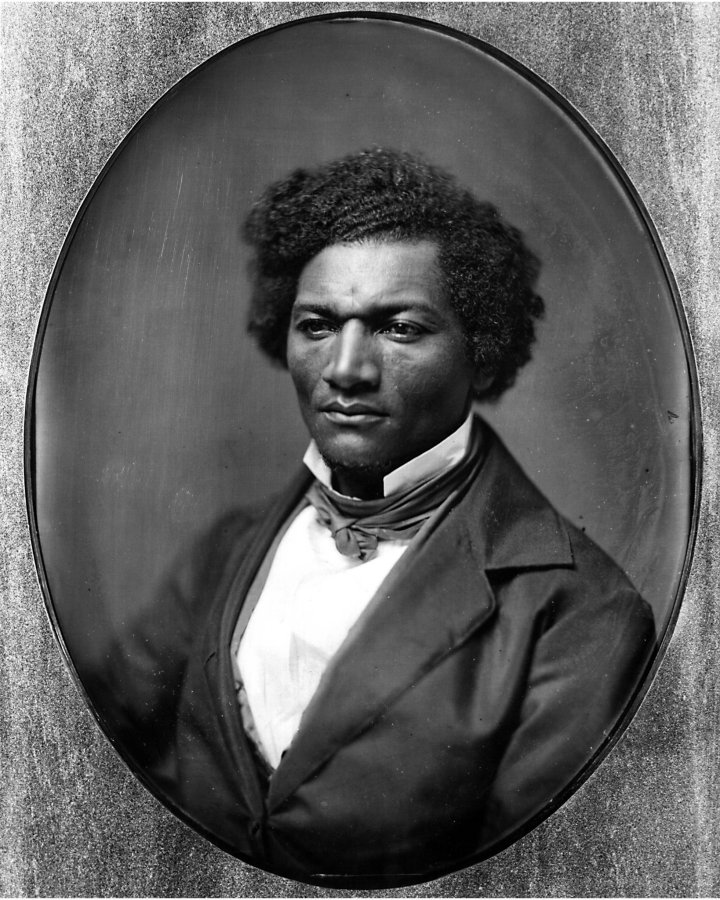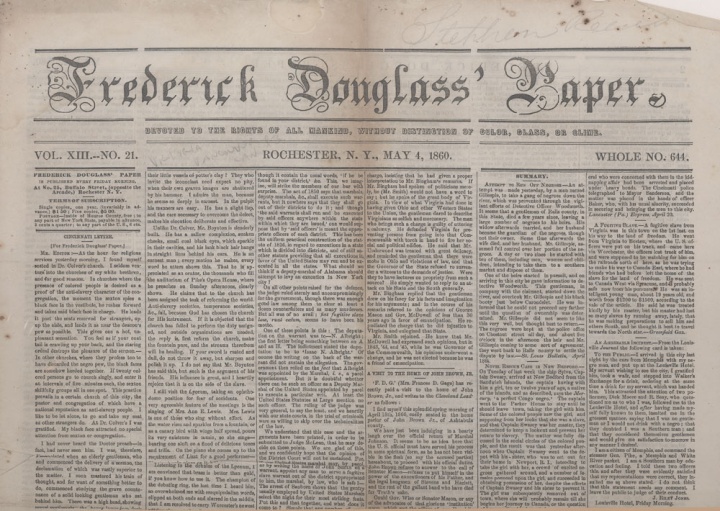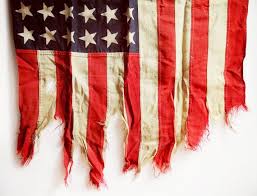
“What I have said respecting and against religion, I mean strictly to apply to the slaveholding religion of this land, and with no possible reference to Christianity proper; for, between the Christianity of this land, and the Christianity of Christ, I recognize the widest possible difference— so wide, that to receive the one as good, pure, and holy, is of necessity to reject the other as bad, corrupt, and wicked. To be the friend of the one, is of necessity to be the enemy of the other. I love the pure, peaceable, and impartial Christianity of Christ.”
Frederick Douglass
‘A Narrative of the Life of Frederick Douglass, an American Slave,’ 1845
I find it not robbery to call this man of black skin color, a great-grandfather of the American spirit, as it is one nation under God. I find it not robbery to call him a spiritual brother. Having passed away in 1895, Frederick Douglass’s legacy is only now beginning to surface from beneath the historical record piling; surfacing unscathed as a magnanimous force aligned with God’s providence. His labor for God’s narrative on human rights was given no surety of fruition in a land long accustomed to the industrialization of humans as commodities. I see not a black man. I do not see a man born of an impoverished African-American slave woman and a wealthy white slave-master. No. I see a man of God— hotter than fire for others,—not singed by the flames of God, but emboldened to ascribe liberty to his circumstances, and then that of others.
He, himself, a bishop of souls through his oratory and written word, through the example of his life, a critical thinker in acquiescence to God’s will, speaks through his works as if right next to our heart, a human being who’s life was in peril of death, of slavery, of intellectual deprivation, of being outcast from a Christian land, even as he himself was a shining Christian in form and deed. Gentle into that good night of complacency he did not go, nor did he rage with unruly passion in his speech and word, but studied his time, measured his cadence, and controlled the release of his message to the people of the United States of America.

What is a ‘modern day’ Christian, but a nomad for sale in a dark spiritual land, which no eye can see, save the awakened eyes of the lively spirit?
Are we not continuously distracted and sliding backwards in the warmth of complacency?
Are we not continuously distracted with the pursuit of happiness, rather than the pursuit of God and his Way—
God, the Great Shepard of souls,
of hearts, minds, and of body
What is an awakened Christian, but an ancient pilgrim formed before the foundations of the world
What is a Christian belonging to Christ, but a harmless dove, clever as the Serpent
called to endure with long suffering
daily rejoicing with sacrifices of joy
daily putting on armor
doing finished works, preordained as ancient soldiers and ‘freed slaves’ to the Lord,
walking in the liberty of a life ransomed forever from a second death
God Put a Lively Spirit in Him
Frederick Douglass put stock into Abraham Lincoln at a time when there was no forward-path to bringing a solution on how to end slavery. It was the soul and the Godly spirit, the self-educated mindset of Douglass that binded onto the the promise of the Declaration of Independence & our Constitution, if such a spirit of union can be, saving the American dream from more than two hundred years of horrendous human slavery.
To his inheritance, the Lord of Lords, the very King of Kings sais through Jeremiah in Chapter 1, verse 5: “Before I formed thee in the belly I knew thee; and before thou camest forth out of the womb I sanctified thee, and I ordained thee a prophet unto the nations.”
“For, behold, I have made thee this day a defended city, and an iron pillar, and brazen walls against the whole land…and they shall fight against thee; but they shall not prevail against thee; for I am with thee, saith the LORD, to deliver thee.” 1:18a and 19
God saved America using Frederick Douglass as his instrument, making him a ‘defenced city,’ even ‘an iron pillar’ to keep His Word, to strengthen himself through His Word, and to stay in tune to His Word; that in doing so, God would use him to bring light through the perfect law of liberty unto a people who had lost their way in the four centuries of enslavement of fellow brothers and sisters. But ask Mr. Douglass of the social isolation and the spiritual divide as a fellow Christian, and you may be surprised to be answered through the work of his life, that he brought forth sacrifices of joy, not in open laughter and jest, but in his continuance of reaching out to the hearts and minds through his speech and word, and then, in striking contrast to the abolitionist of his time, through the leveraging of his oratory and writing into political action. His form of Christianity followed God’s Word devoid of the trappings of earthly Christianism. He was no preacher, but he was surely a teacher and, yes, bishop to many souls.

Yes, Frederick Douglass traded the physical bread he had as a seven year old boy for coins to purchase his first book, a collection of essays and short literary excerpts (The Columbian Orator, by Caleb Bingham) of the great orators throughout time, ranging from George Washington to Cicero. His friendships with white-skinned children of the street in his childhood had none of the racial prejudices besetting the country of the time, though he was a slave, and they were freeborn. They empathized with him and he was able to begin his onward march to teach himself to read and write. Together with Judeo-Christian holy scripture, these two books were the creators of his dynamism, and his ancient form of Christianity, which he wore proudly on his sleeve, as if to say, ‘no sir, I am no slave, but an eternal man of God.’
It is this pure, ‘tried in the fire seven times’ form of Christianity that served as the vehicle of faithful, integral, confidence— making Frederick Douglass a commanding intellectual Christian, if not a force of God, precisely at a time when the United States of America was tumbling down from the golden achievements of its independence.
Comments